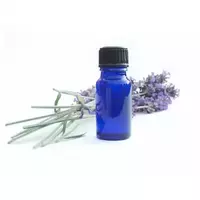Lavender oil

The generally recognized queen of aromas is considered lavender, which is a truly universal plant used in many industrial and domestic areas of modern life. This is cooking, cosmetology, perfumes, as well as the production of household chemicals and, undoubtedly, medicine.
Today, lavender essential oil is most actively used, which is a colorless liquid with a saturated aroma. It is widely used not only as an independent agent, but also as a component in combination with other aromatic oils.
The plant itself is distinguished by its tart taste and strong spicy smell, which goes into lavender essential oil - such an urgent component in the industrial production of distillery and perfume and cosmetic products. The most widely flavored lavender oil is used in the cooking of Spanish, Italian and French cuisines.
However, due to the rather strong aroma, lavender oil is usually added in meager doses and in certain dishes. For example, some foodies like the aroma of lavender in green oil, as well as vegetable meals, where the smell characteristic of this plant is perfectly combined with the aromas of saber, dill and sage.
In general, it is customary to obtain lavender essential oil using water-steam distillation of a plant that belongs to the species Lavandula officinalis from the Yasnotokovy family. All parts of this grass contain essential oil, but its largest doses accumulate in inflorescences.
Composition of lavender oil
Thus, in the composition of lavender oil, the main part is represented by esters of the alcohol L-linalool, as well as certain types of acids, including capronic, acetic, valerian and oily. In addition, lavender oil owes its rich aromatic properties to the presence of substances such as geraniol, lavandiol, gerniarin, caryophyllene, coumarin, borneol and others. And lavender flowers contain tannins, resins and bitterness in large quantities.
The benefits of lavender oil
The benefits of lavender oil are obvious due to its neuro- and myotropic activity, as well as the properties of this liquid to act calming with neurasthenia and palpitations. Previously, this aromatic oil was used to improve the smell of medicines, and today it is widely used in Bulgaria in dental affairs, as well as for therapy with inhalations of laryngitis, rhinitis and pneumonia.
Traditional medicine also highly appreciates this natural concentrate and claims the benefit of lavender oil in the form of alcohol solutions in the treatment of migraine, rheumatism, neurasthenia, urolithiasis and pyelonephritis, cardiovascular diseases. In addition, it is often recommended to be included in medical baths for inflammatory processes of the joints, as a wound healing, for skin diseases, mild bruises, complex dislocations and even paralysis.
lavender oil 899 kCal
Energy value of lavender oil (Ratio of proteins, fats, carbohydrates - ju):
Proteins: 0 g (~ 0 kCal)
Fats: 99.9 g (~ 899 kCal)
Carbohydrates: 0 g (~ 0 kCal)
Energy ratio (b | y): 0% | 100% | 0%
 Español
Español Français
Français Português
Português Русский
Русский 简体中文
简体中文 繁體中文
繁體中文 日本語
日本語 한국어
한국어 العربية
العربية Türkçe
Türkçe Қазақ
Қазақ Deutsch
Deutsch Italiano
Italiano Українська
Українська
